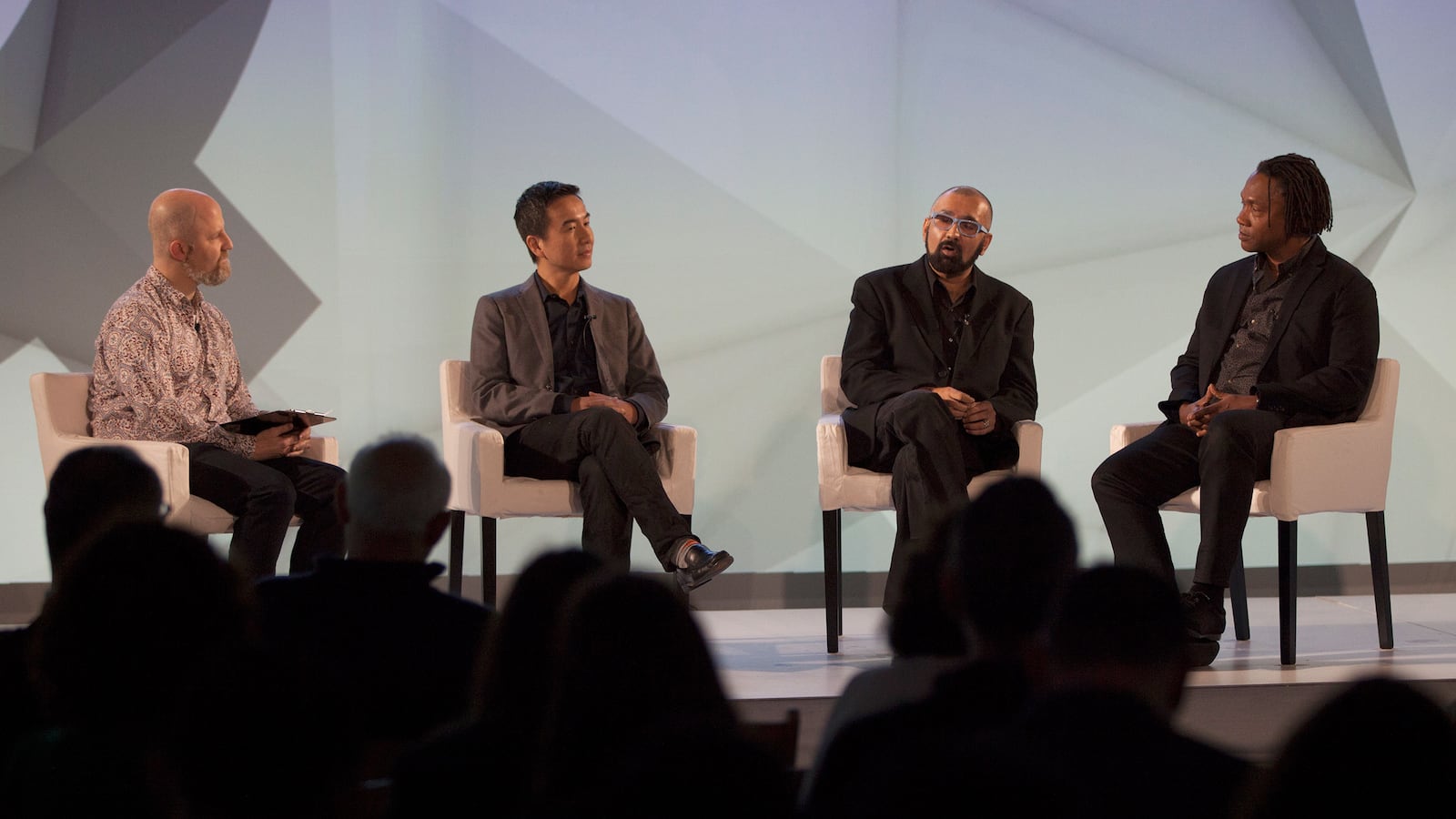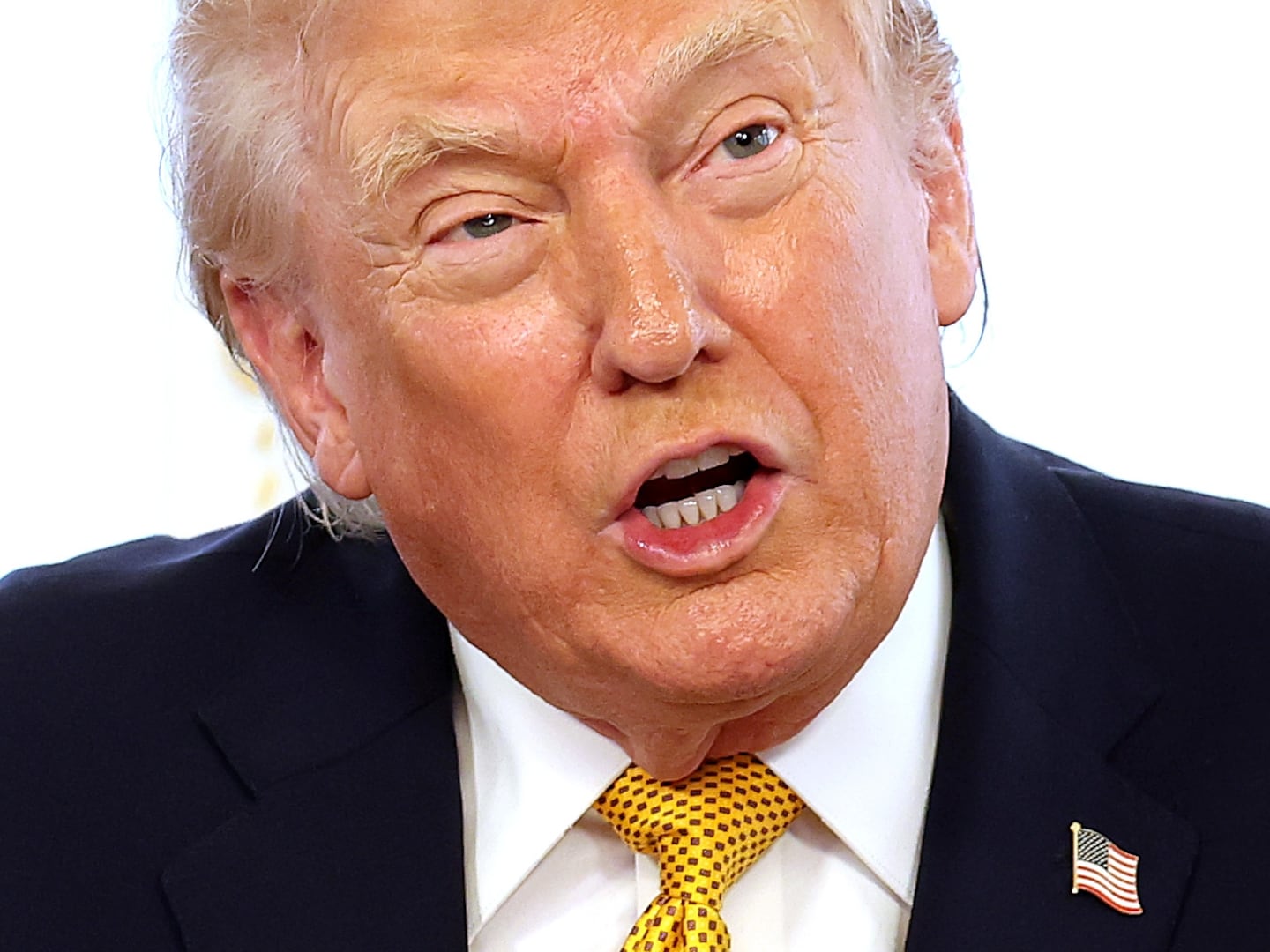Quorum is a live journalism forum focused on LGBT experiences around the world. Its mission is to lift up the voices of non-Western LGBT activists defining the struggle for justice. Vistit Quorum.TheDailyBeast.com for more stories of persecution, triumph, adversity and strength.
In retrospect, we should have expected this.
Last December, when The Daily Beast brought together a dozen LGBT activists from around the world to share their stories, we expected to learn a lot. And we did. But despite the stories the activists shared about their disparate backgrounds and different experiences, what they all had in common emerged most clearly: courage, daring, resilience.
This was not exactly the plan.
One of the guiding principles of the Quorum program—the next installment is being scheduled for autumn—to “reverse the megaphone” in international LGBT activism. Often, activists and governments from the U.S. and other Western countries have a paternalistic attitude toward the Global South and Global East.
Listen to us, we shout, and learn from us how to respect human rights.
Even apart from the way this arrogance ignores the West’s own egregious failings in protecting human rights, this line of thinking can often do more harm than good. Many countries in Africa and the Islamic world, for example, have indigenous conceptions of sexual and gender diversity. But when Western activists force all of them to conform to “LGBT” and to Western conceptions of rights, they create conservative resistance to these “new” or “un-African” or “un-Islamic” ideas. They play right into the traditionalists’ rhetoric.
Even the language we use can be unintentionally marginalizing. We say LGBT, for example, but the more prevalent international term is SOGI—sexual orientation and gender identity—because it doesn’t assume that Western categories fit everyone’s experiences. The legacy of colonialism is still with us, even in the words we use.
Or, to take another example, some countries in Asia—including Thailand and Malaysia—may have attitudes toward sexual minorities that are at once more progressive and less progressive than those of Western countries. On the one hand, identities like kathoey (“ladyboys”) are an accepted part of culture, blending elements of Western constructions of transgender and homosexuality. On the other hand, such identities may be relegated to specific roles in society, and marginalized by the mainstream.
As someone involved in international LGBT activism for many years, I was eager to give overseas activists a platform so that they could teach us about issues like these. And we—wisely, I think—made the decision to get out of the way and let people tell their own stories.
We got more than we bargained for. As much as we wanted to emphasize the differences in experiences around the world, the commonalities rose to the top. Speaker after speaker stunned the crowd at the New York Public Library with their personal stories of survival, challenge, and triumph. More than one survived sexual assault, several had had their lives threatened. Some—Anastasia Smirnova from Russia, Maurice Tomlinson from Jamaica, Bisi Alimi from Nigeria—had to flee their countries in order to live their lives.
I hate to say it, but what we learned at Quorum was less about the productive differences among cultures, and more about what unites us in spite of them. It sounds corny, but it was impossible to miss.
When straight ally Meena Seshu talked about learning from sex workers about their concerns and lives, it was a very specific story about transgender/cross-dressing sex workers in India—but a universal one about Meena’s courage and humility.
When Essy told us that she hid her name and identity not out of fear, but in order to dialogue with religious leaders who otherwise wouldn’t talk to her, she, too, told a very specific story about Kenyan society, but also a more general one about engaging with the “enemy” and finding new ways to do essential activist work.
Nisha Ayub’s story of being thrown in jail for being transgender in Malaysia is, thankfully, unfamiliar to most of us in the United States—but the way her gender identity intersected with issues of religion and power was entirely familiar. Not to mention her courage and resilience.
I wondered, too, about how many of us here in the relatively comfortable United States would make the sacrifices that others have made. I can’t really relate to Kenita Placide’s specific experiences of becoming a leading LGBT activist in St. Lucia, but I can relate to the uncertainty she felt along the way. And the fear when members of her community were targeted with violence. Kenita, Alice Nkom, Jabu Pereira—these are all people who have had friends and colleagues murdered.
I’ve been heckled a few times, threatened, and booed—but would I risk what they have risked?
There’s no way of knowing, of course, what I would do in their positions—which, of course, was part of the point from the beginning. What we as Western allies need to do, other than write checks and pressure leaders, is find ways to support those overseas who are already risking more than we can ever know to secure the safety and dignity of those marginalized for reasons of sexual orientation and gender identity. Despite gains in the United States, SOGI minorities are losing many battles overseas. Not only is the battle not over, it’s not clear who’s going to win.
Fools rush in where angels fear to tread. But where real human beings are already walking, marching, organizing, dialoguing—others of us can amplify their voices, support their work, and maybe, along the way, be inspired.






